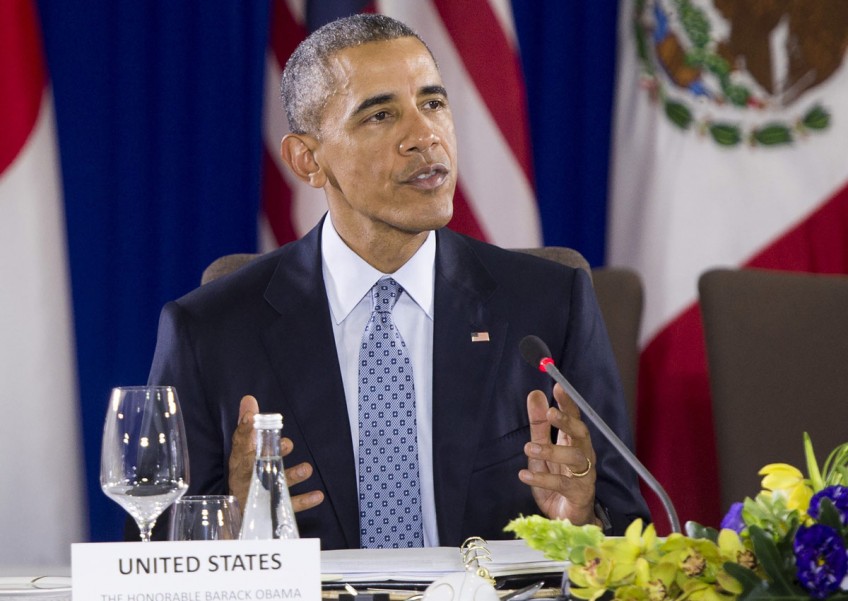TPP agreement signed, two years to ratification

The Trans-Pacific Partnership (TPP), one of the world's biggest multinational trade agreements, was signed by its 12 member nations yesterday in New Zealand.
The signing marks the end of the negotiating process, but the member countries now have two years to get the deal approved at home before it takes effect.
The TPP is a far-reaching agreement involving 12 countries making up 40 per cent of the world economy. They are Australia, Brunei, Canada, Chile, Japan, Malaysia, Mexico, New Zealand, Peru, Singapore, the United States and Vietnam.
The countries represent a large market for Singapore, accounting for 30 per cent of its total trade in goods in 2013, and 30 per cent of foreign direct investment here.
The TPP has its roots in the P4 (Pacific four) partnership from a decade ago, which Singapore inked with Brunei, Chile and New Zealand. This formed the core of the TPP.
US President Barack Obama hailed the signing of the deal yesterday and said the TPP would give the US an advantage over other major economies, notably China. "TPP allows America - and not countries like China - to write the rules of the road in the 21st century, which is especially important in a region as dynamic as the Asia-Pacific," he said in a statement from Washington.
The agreement has been fraught with controversy. Yesterday, protesters blocked roads outside the signing venue, Auckland's Sky City Convention Centre.
Those against the deal have expressed concern about the secrecy in which the negotiations were conducted and the threats it poses to some local sectors. They also argue that it will likely protect the rights of large investors and corporations.
The TPP will enter into force once at least six original signatories, accounting for at least 85 per cent of economic activity across the TPP countries, have ratified the deal. This is by no means certain, with the deal being seen as a lightning rod in countries like the US and Canada.
In Singapore, the agreement will be ratified once it is approved by the Cabinet and any legislative changes that may be required are passed in Parliament.
chiaym@sph.com.sg

This article was first published on Feb 5, 2016.
Get a copy of The Straits Times or go to straitstimes.com for more stories.